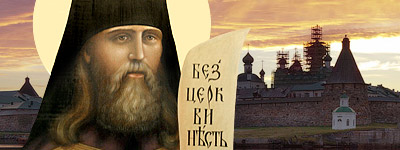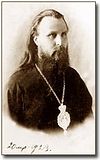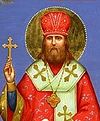

| Previous day | Next day |
| Old Style
December 15
|
Thursday |
New Style
December 28
|
|
30th Week after Pentecost.
Tone 4.
Nativity Fast. |
Fish, wine and oil allowed.
|
![]() Hieromartyr Eleutherius, bishop of Illyria, and Martyrs Anthia (his mother), Coremonus the eparch, and two executioners who suffered with them (117-138).
Hieromartyr Eleutherius, bishop of Illyria, and Martyrs Anthia (his mother), Coremonus the eparch, and two executioners who suffered with them (117-138). ![]() St. Paul of Mt. Latros (956).
St. Paul of Mt. Latros (956). ![]() St. Stephen the Confessor, archbishop of Surozh in the Crimea (ca. 790).
St. Stephen the Confessor, archbishop of Surozh in the Crimea (ca. 790). ![]() New Hieromartyr Hilarion (Troitsky), archbishop of Verey (1929).
New Hieromartyr Hilarion (Troitsky), archbishop of Verey (1929). ![]() Synaxis of the Saints of the Crimea.
Synaxis of the Saints of the Crimea.
Martyr Eleutherius of Byzantium (beg. of 4th c.). St. Pardus, hermit, of Palestine (6th c.). St. Tryphon of Pechenga, or Kola (1583), and his martyred disciple Jonah (16th c.). Synaxis of the Saints of Kola.
Martyr Susanna the Deaconess, of Palestine (4th c.). Monk-martyr Bacchus of St. Sabbas Monastery, at Misr al-Fustat (Egypt) (787).
Thoughts for Each Day of the Year
According to the Daily Church Readings from the Word of God
By St. Theophan the Recluse

Thursday. [Heb. 10:35-11:7; Mark 9:10-16]
History flows on and, it seems, inexorably determines individual events. How many preparations there were to receive the Saviour!… At last His closest indicator came, John, but what came of it? With John, They have done…whatsoever they listed, and the Son of Man suffered and was humiliated. The flow of events could not be broken; it took its own. So the flow of history always draws everything after it. People ask, “Where is freedom? What is it, given such an order of events? No more than a phantom.” Thus fatalists usually reason. But this all-determining necessity for the flow of events is only an appearance; in reality all human events, both common and individual, are the fruit of man’s free undertakings. The common [history] flows exactly the way it does because everyone, or a majority of people, want this; and the individual enters into agreement with the common [majority] because one or another in particular wants it. The proof of this is obvious: in the midst of general good there occur bad particulars; and in the midst of general bad there occur good particulars. Also, in the midst of a firmly established commonality are born particulars which, spreading and becoming stronger and stronger, overpower the former commonality and take its place. But these particulars are always a matter of freedom. What in di Christianity have in common with the character of time in which it was conceived? It was sown by several individuals who were not a result of the necessary flow of history; it attracted those who desired it; it spread vigorously and became the general affair of mankind of the time, and yet it was a matter of freedom. Similarly, only in a bad direction—how did the West become corrupted? It corrupted itself: instead of learning from the Gospels they began to learn from pagans and adopt their customs—and they became corrupted. The same will happen with us: we have started to learn from the West which has fallen from Christ the Lord, and have transferred its spirit to ourselves. Finally, like the West, we will renounce true Christianity. But in all of this there is nothing necessarily determining the matter of freedom: if we want to, we will drive away the Western darkness. If we don’t want to, of course, we will submerge ourselves in it.
Articles
 Hieromartyr Eleutherius the Bishop of Illyria, and His MotherSaint Eleutherius, the son of an illustrious Roman citizen, was raised in Christian piety by his mother. |
 Venerable Paul of LatrosSaint Paul of Latros was a native of the city of Aelen in Pergamum. Early bereft of his father, he was educated at the monastery of Saint Stephen in Phrygia. |
 St. Stephen the Confessor the Archbishop of Sourozh in the CrimeaSaint Stephen the Confessor, Archbishop of Surrentium (Sourozh), was a native of Cappadocia and was educated at Constantinople. |
 St. Hilarion (Troitsky) |
 Martyr Eleutherius at ConstantinopleThe Holy Martyr Eleutherius Cubicularius was an illustrious and rich chamberlain [“cubicularius”] at the Byzantine court. |
 Venerable Tryphon the Abbot of Pechenga (Kolsk)Saint Tryphon of Pechenga and Kola, in the world Metrophanes, was born in the Novgorod governia into a priestly family. |







